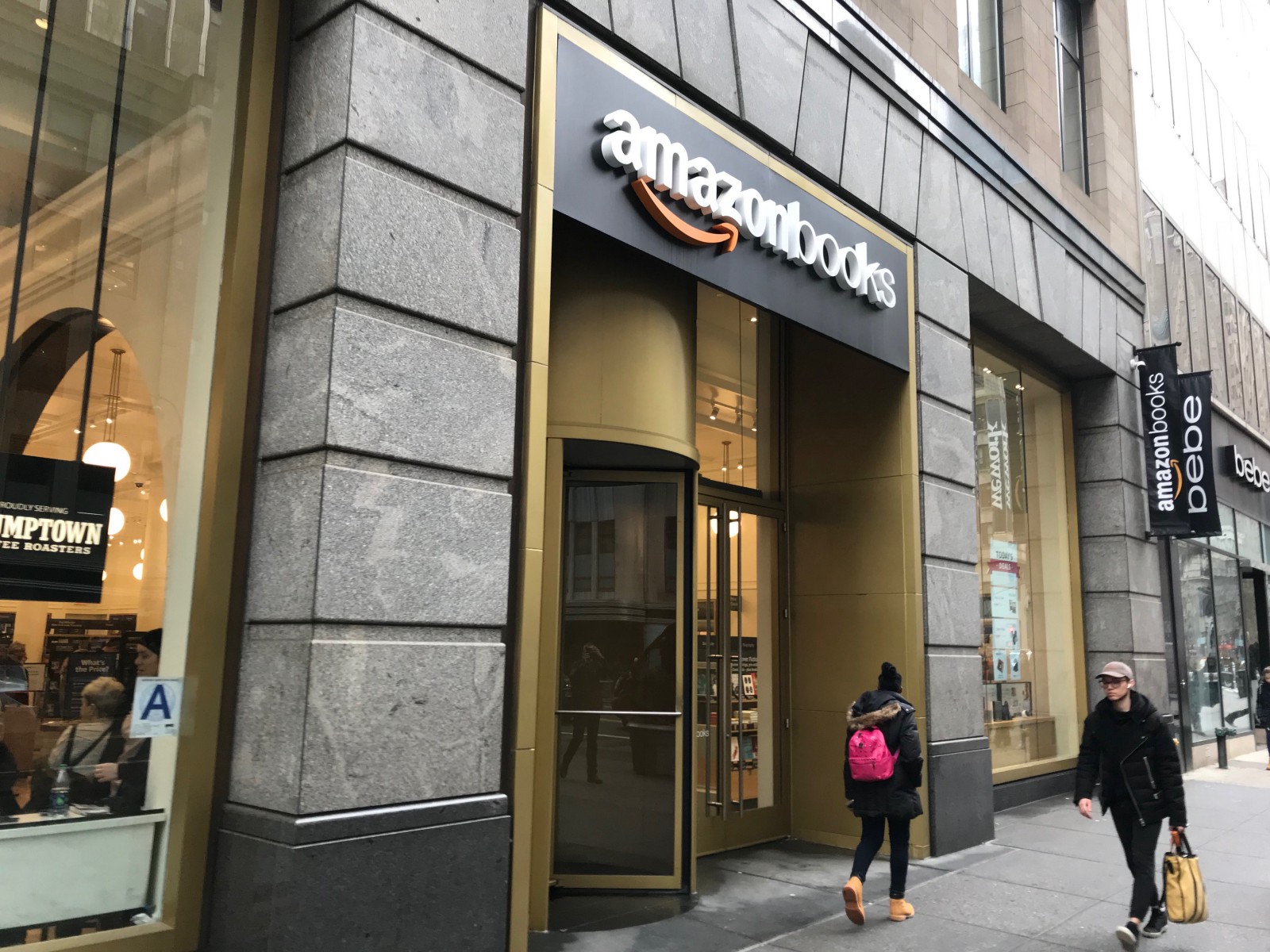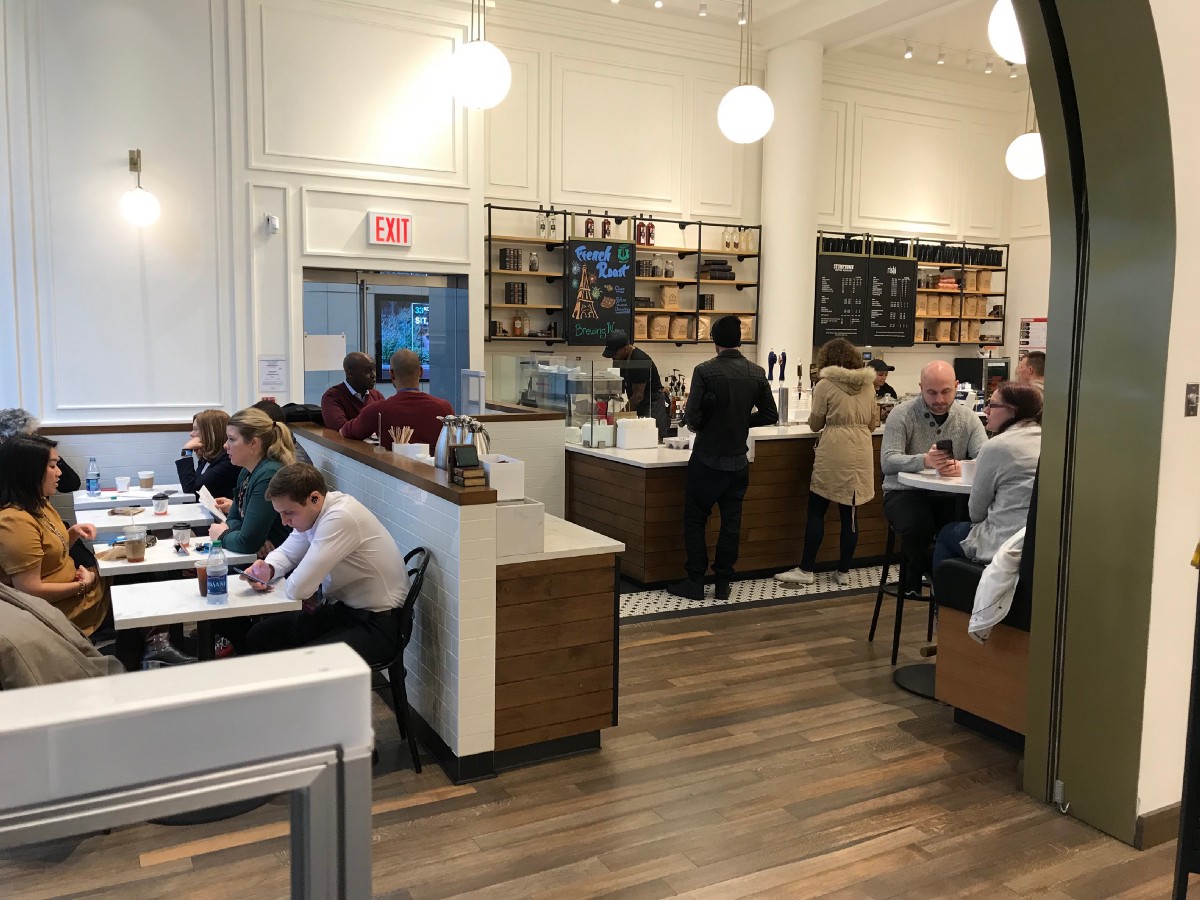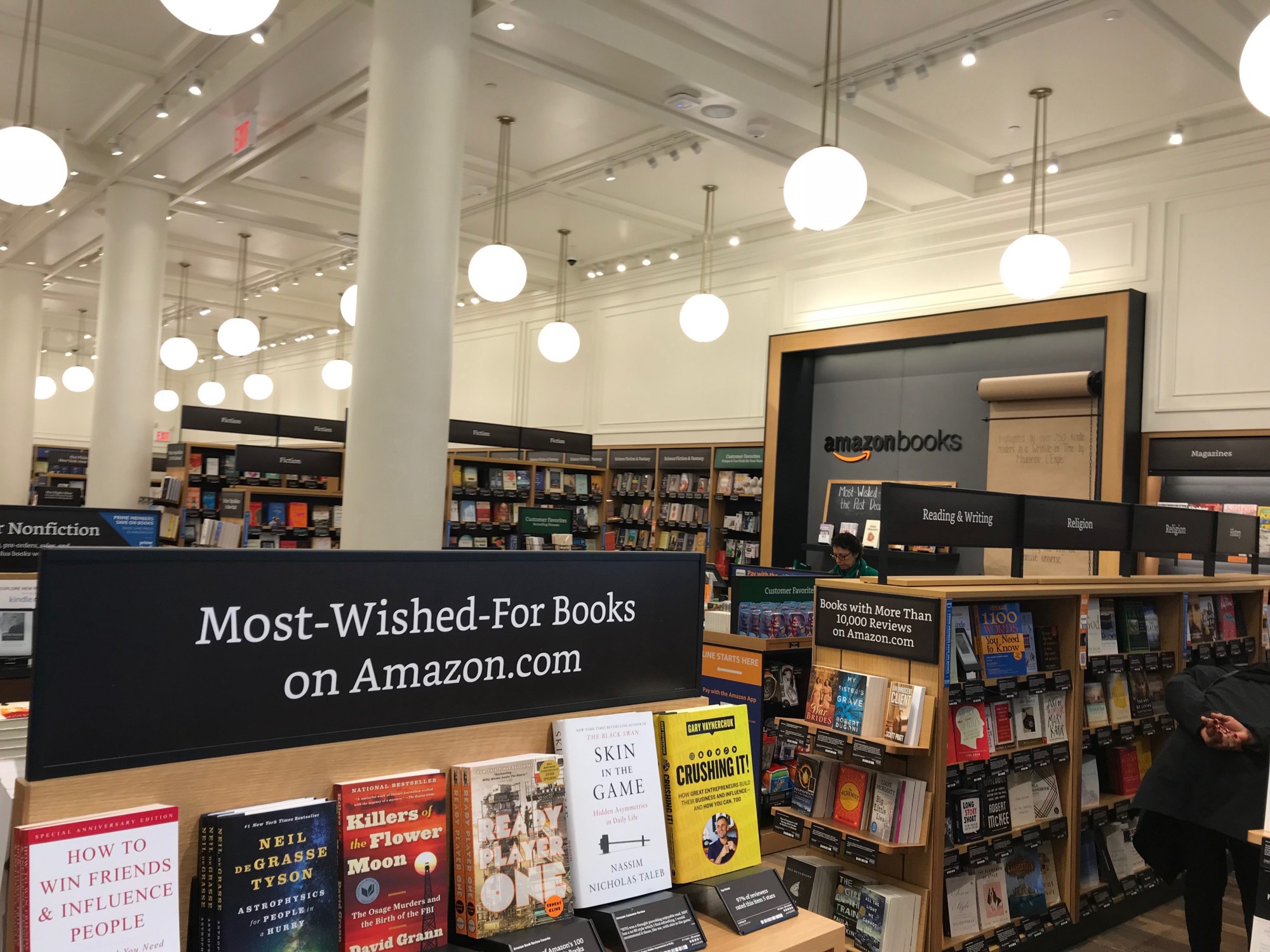I was in Manhattan last week so stopped into the Amazonbooks store. Given Amazon’s reputation with Go, Drones, Blimps, etc. and their label as a traditional retailer killer, I braced for a truly unique (and perhaps mind blowing) experience. I was genuinely excited to check it out.

A friendly associate welcome me upon entry and, having found out I was a first-timer, took me through the whole process. For those of you who haven’t been, you use the app to scan books, access prices, find books and pay.
The store looks like a traditional book store, shelves of books, a few Amazon devices on tables and a coffee shop off to the side. If you want to find out the price for a book you can either look at the insert or they prefer you scan the book with your app. If you are a Prime member, you get the Prime price. On the shelf set beneath each book is a printed review card. The card has a “real” review on it and a star rating for the book (think what Best Buy did years ago but large enough to actually read). That’s the store in a nutshell.

Now I’m really a library guy; why buy a book you will likely only read once? But I decided to give the store a shot so searched for the Elon Musk biography that’s been on my list.
Together the associate and I searched for the book. The search went like this: Type Musk into the app, a few titles pop up, select the right one, the page says lists the part of the store it’s in, we walk over to, in this case Biographies, and find the book.

By now I am in a hurry so I grab the book and head over to checkout. Just before I get there another customer steps into line ahead of me. She has a question, seems like a complex one. I stand there with my app open and book in hand. Amazon knows me, I just scanned the book 5 minutes beforehand. I wait another 2–3 minutes and wonder why I can’t just walk out of the store. Finally I get my turn. The (super friendly) woman behind the counter has me scan by phone, puts my book in a bag and asks if I want a printed receipt. I walk away wondering why the I had to wait in line.
When the associate asked me what I thought of the store, I said, “this feels like a Barnes and Noble”. Her gasp actually made me feel a little guilty. Just a little.
The store didn’t live up to my expectations. My mind was far, far from being blown away. I was actually ticked that I had to wait in line and couldn’t slip that feeling for a while afterwards.
My takeaways.
1) Amazon has set some pretty high expectations, pressure is on to deliver.
2) Though I found the bookstore ho hum (with great associates), I can only assume that Bezos has something else up his sleeve on this.
3) I understand that the US market might not be ready for something more advanced than this but I’d rather have seen Amazon push this further (see point 1), even integrating the Go infrastructure.
4) There are opportunities to vastly improve reviews. How they are curated and delivered, especially in a store setting.
5) Maybe Amazon should bail on stores and just become the OS of all retail.
6) If they keep building stores, I hope their teams have some misfits and hackers who will push on convention. Traditional retail really isn’t that old but so many preconceived notions of what it should be are molded into our minds and that’s holding the industry back.
Raj B. Shroff is Principal and Founder of PINE.
(Full disclosure: I’ve made great money on my investment in Amazon, am a Prime member and am rooting for them to live up to the hype. Btw, read the Musk book, it’s inspiring).